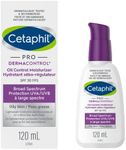Best Sunscreen For Allergic Skin
From leading brands and best sellers available on the web.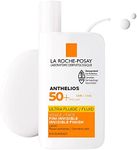
La Roche-Posay
La Roche-Posay Anthelios Ultra-Fluid Face Sunscreen SPF 50, Broad Specturem UVA-UVB Sun Protection, Lightweight, Non-Comedogenic, Water Resistant, Fragrance Free, 50 ML

EltaMD
EltaMD UV Clear Facial Sunscreen, Broad-Spectrum SPF 46 for Sensitive or Acne-Prone Skin, Oil-free, Dermatologist-Recommended Mineral-Based Zinc Oxide Formula, 1.7 oz
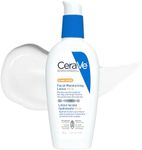
CeraVe
9%OFF
CeraVe Facial Moisturizer with SPF 30. Face Sunscreen Lotion with Hyaluronic Acid, Niacinamide & Ceramides for Women & Men. Oil-free, normal to dry skin. Verified Extended Use Date, Travel Size 89ML
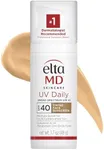
EltaMD
EltaMD UV Daily Tinted Broad-Spectrum SPF 40 Moisturizing Facial Sunscreen, 1.7 oz
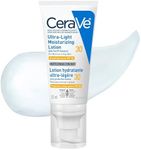
CeraVe
CeraVe Ultra-light Face Moisturizer with SPF 30. Hyaluronic Acid face sunscreen lotion for Men & Women, Normal to Oily & sensitive skin. Fragrance-Free, Oil-Free, Non-Comedogenic, Travel Size 52 ML
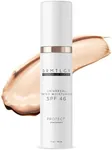
DRMTLGY
10%OFF
DRMTLGY Anti-Aging Tinted Moisturizer with SPF 46. Universal Tint. All-In-One Face Sunscreen and Sheer Coverage with Broad Spectrum Protection Against UVA and UVB Rays. 1.7 oz

La Roche-Posay
La Roche-Posay Body Sunscreen Lotion, Anthelios Sunscreen Broad Spectrum SPF 60, Fragrance-Free, Non-Comedogenic, Non Greasy, Hypoallergenic, Water Resistant, Dermatologist Recommended, 150ML

Neutrogena
23%OFF
Neutrogena Hydro Boost Water Gel Sunscreen Lotion with Broad Spectrum SPF 50, Water-Resistant & Non-Greasy Hydrating Sunscreen Lotion, Oil-Free, 88 mL
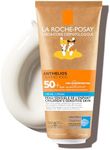
La Roche-Posay
8%OFF
La Roche-Posay Kids Sunscreen, Anthelios Dermo-Kids SPF50+ Face & Body Sunscreen Lotion, Broad Spectrum UVA UVB Protection for Children's Sensitive Skin, now in an Eco-Tube Fragrance-Free, 200mL

